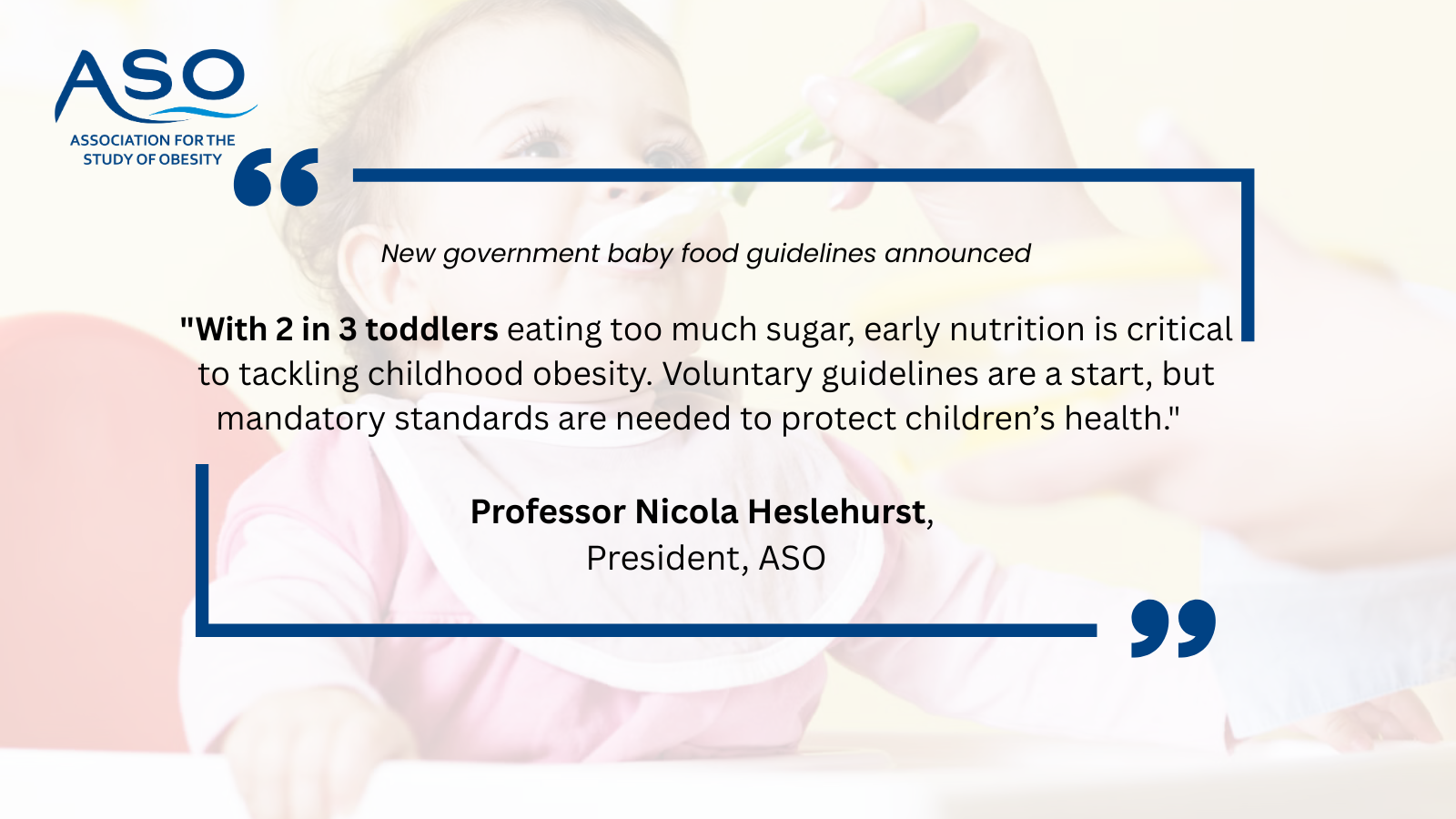The Government has today announced new voluntary guidelines for commercial baby food in England, aimed at reducing sugar and salt levels and improving labelling to help parents make informed choices. Manufacturers have been given 18 months to implement the changes.
The guidance comes amid growing concern about the nutritional quality of many baby foods currently on the market. Research shows that two in three toddlers consume more sugar than recommended, and misleading marketing claims often make products appear healthier than they are. These practices risk setting unhealthy dietary patterns early in life, contributing to the UK’s persistently high rates of childhood obesity.
Professor Nicola Heslehurst, President of the Association for the Study of Obesity (ASO), said:
“With two in three toddlers eating too much sugar, early nutrition is critical to tackling childhood obesity. Voluntary guidelines are a start – but mandatory standards are needed to protect children’s health and ensure that commercial baby foods support healthier diets.”
ASO welcomes the recognition of the problem and the first steps being taken, but shares concerns raised by researchers and child health experts that voluntary measures may not go far enough. If progress is limited, stronger regulatory action will be essential.
Background
-
The new guidance applies to commercial baby foods aimed at children up to 36 months old.
-
Key measures include reducing sugar and salt levels, prohibiting sweeteners, and ensuring clearer labelling.
-
The Department of Health and Social Care has stated it will review industry compliance after 18 months and consider tougher measures if necessary.
-
Childhood obesity remains a major public health challenge: more than one in five children in England are overweight or living with obesity when they start primary school.
ASO will continue to monitor developments closely and work with partners across public health, research, and policy to ensure early years nutrition supports children’s long-term health.

